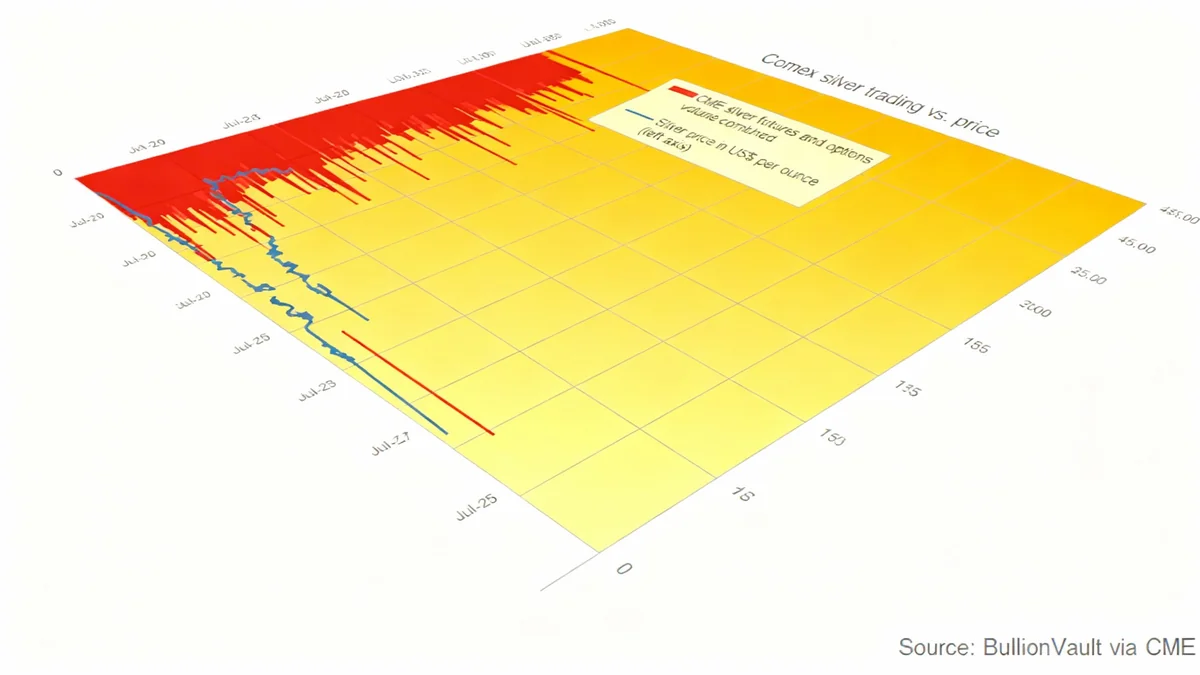Zions Bancorporation experienced a significant stock decline, losing $1 billion in market value in a single day, after the company disclosed it had provided $60 million in loans that are not expected to be repaid. The disclosure has triggered a lawsuit and raised concerns about the health of the regional banking sector.
The bank's subsidiary, California Bank & Trust, has filed a lawsuit alleging that the borrowers intentionally manipulated the loan structure, eliminated the bank's collateral, and enriched themselves at the bank's expense. The news contributed to a wider market downturn, with the Dow Jones Industrial Average falling by 300 points.
Key Takeaways
- Zions Bancorporation's valuation fell by $1 billion after its stock plunged 13% on Thursday.
- The drop was caused by the disclosure of $60 million in loans now considered unrecoverable.
- The bank has filed a lawsuit against the fund managers responsible, alleging a scheme to eliminate collateral.
- Zions will take a $50 million charge-off in its third-quarter earnings.
- The news has created broader anxiety within the U.S. regional banking sector.
Market Reacts to Loan Disclosure
Investor confidence in Zions Bancorporation was shaken on Thursday following an announcement regarding significant loan losses. The company's shares fell by 13%, a sharp decline that erased approximately $1 billion from its total market capitalization in one trading session.
The catalyst for the sell-off was a regulatory filing submitted on Wednesday. In the document, Zions stated it would need to set aside a provision for $60 million in outstanding loans. The company also announced it would officially charge off, or declare as a loss, $50 million of that amount. This financial adjustment will be reflected in the bank's upcoming third-quarter earnings report, scheduled for release on Monday.
Impact on the Broader Market
The concerns were not limited to Zions. The news sparked fears about potential hidden risks in the loan portfolios of other regional banks, leading to a sector-wide decline. The negative sentiment contributed to a broader market dip, with the Dow Jones Industrial Average closing down 300 points for the day.
Lawsuit Alleges 'Sweeping Betrayal of Trust'
In response to the loan situation, Zions' subsidiary, California Bank & Trust (CB&T), has initiated legal proceedings. The lawsuit, filed on Wednesday in Los Angeles County, names Andrew Stupin, Gerald Marcil, and their associate Deba Shyam as defendants. Stupin and Marcil are managers of several investment funds operating under the name “Cantor Group.”
The legal filing accuses the defendants of a calculated scheme designed to defraud the bank. According to the lawsuit, the borrowers engaged in a “sweeping betrayal of trust by sophisticated financial borrowers who abused CB&T’s confidence.”
Details of the Alleged Scheme
The core of the dispute dates back to 2016 and 2017 when CB&T provided approximately $60 million in credit facilities to two related funds, Cantor Group II and Cantor Group IV. The purpose of these loans was to finance the purchase of distressed residential and commercial mortgages.
Zions claims its agreement with the borrowers guaranteed the bank a first-priority interest in the collateral. This legal status ensures that in the event of a default, the bank is the first creditor to be paid from the sale of the secured assets.
“Acting through a web of affiliated companies, the borrowers and guarantors orchestrated a scheme that enriched themselves while stripping CB&T of its collateral, all while keeping the bank in the dark for years about the true status of its securities interests…”
However, the lawsuit alleges that the defendants secretly subordinated the deeds that were meant to secure the loans. This action effectively pushed CB&T down the line of creditors without its knowledge or consent. The properties used as collateral were allegedly transferred to other entities or entered foreclosure, resulting in a complete loss of the bank's security.
How the Scheme Unfolded
According to the lawsuit, the new senior lenders who took CB&T's first-priority position were entities controlled by the defendants themselves or their affiliates. Zions argues this structure allowed the defendants to profit directly from the bank's losses. “In effect, CB&T’s losses became Defendants’ gains,” the lawsuit states.
Discovery Prompted by Another Bank's Lawsuit
Zions Bancorporation reportedly became aware of the issue after another financial institution, Western Alliance, filed its own lawsuit against a related Cantor fund. The Western Alliance suit also alleged fraud, prompting CB&T to launch its own internal investigation into its loans with the Cantor Group.
Following Zions' announcement, Western Alliance issued its own 8-K filing. The bank confirmed it had initiated a lawsuit against Cantor for fraud, specifically citing the borrower's “failing to provide collateral loans in the first position, among other claims.”
Despite the legal action, Western Alliance offered a more optimistic outlook. The bank stated that it believes its existing collateral is sufficient to cover the outstanding obligation and affirmed its previous financial guidance. Western Alliance is scheduled to report its earnings on Tuesday.
The unfolding situation highlights the potential risks within commercial lending and has placed the management and due diligence practices of regional banks under increased scrutiny from investors and regulators.





